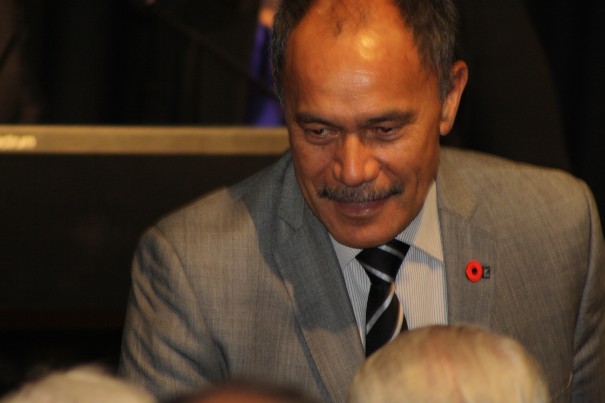Ngarimu VC 28th Maori Battalion Memorial Scholarship Awards

Rau rangatira mā e hui tahi nei,
Ngā Minita Pāremata, Hekia me Pita,
Ngā Mema o te Pāremata o Aotearoa,
Ngā Tari Manatū,
Te whānau a Te Moana nui a Kiwa Ngārimu,
E te mōrehu me ngā uri o rātou mā o 28 Māori Battalion,
Te Kaiwhakahaere, Herewini Parata,
Willie Apiata VC,
Tēnei aku mihi māhana,
Tēnā tātou katoa.
Distinguished guests,
Hon Hekia Parata and Hon Dr Pita Sharples,
Honourable Members of the Parliament of New Zealand,
Representatives of Government Ministries
The family of Te Moana-nui-a-Kiwa Ngārimu,
The veterans and descendants of the soldiers 28 Māori Battalion,
Master of Ceremonies, Herewini Parata,
And Willie Apiata VC,
My warm greetings to you all.
Thank you for the opportunity to be here tonight. It is a great privilege to take part in this evening’s event – to commemorate and honour Second Lieutenant Te Moana-nui-a-Kiwa Ngārimu VC and the men of the 28th (Māori) Battalion.
In May I visited the town of Cassino in Italy for the commemoration of the 70th anniversary of the Battle of Cassino.
The ceremony at Cassino railway station put me in mind of the great men of the Māori Battalion – and particularly of those who made the ultimate sacrifice.
At the New Zealand service at the Cassino Commonwealth War Graves Commission Cemetery I referred to the words of French author Laurent Binet who wrote: “Memory is no use to the remembered, only to those who remember. We build ourselves in memory and we console ourselves with memory.”
In the awards presented here tonight, our young people are inspired by the memory of men who fought a long way from home in order to ensure they would live in a world of freedom, democracy and opportunity.
And in particular, we remember 2nd Lt Ngārimu, a young man of Ngati Porou and Te Whanau-a-Apanui descent; a young man who had been educated at Whareponga and Hikukirama and Te Aute College; a young man who died just twelve days before his 24th birthday a long way from home on a hill called Point 209 – which C Company of the Māori Battalion renamed ‘Hikurangi’.
There his comrades won a victory, but lost a leader.
The citation for Ngārimu’s Victoria Cross, awarded posthumously, speaks of his “inspired leadership and outstanding courage”.
His parents were presented with his VC medal at a hui in Ruatoria, in October 1943, which was attended by 7000 people.
The Governor General of the day, Sir Cyril Newall, presented it to them, and the National Film Unit was on-hand to record the event. That film was shown to the soldiers of the New Zealand Division, which was by then in Italy. It would have been most keenly watched by its 28th Battalion, and you can imagine C Company men looking hard for their whanau in the big crowd.
The citation was published, in both English and Māori, in a booklet by Sir Apirana Ngata titled The Price of Citizenship. Today that medal is in the Price of Citizenship Gallery at Te Tairawhiti Museum in Gisborne.
There are some students here tonight who were in the group that went to Cassino for the 70th anniversary commemorations. Last week when I was on the East Coast I met students from that trip. It was clear that being in Cassino and seeing the graves of their tupuna had made a great impression on each and every one of them.
I saw in them a resolve to make good use of their lives, to take opportunities when they are presented, and to strive to live up to the memory of those men who lost their lives so early.
The men who survived the Second World War and came home led Māoridom into a new era - men like James Henare, Charles Bennett, Rangi Royal and Rangi Logan.
This was to be the Battalion’s living legacy – a generation of Māori leaders who laid the groundwork for the resurgence of Māori tikanga and reo; and our identity, politics and aspirations.
The Ngārimu and 28th (Māori) Battalion scholarships are an important part of that legacy. They were set up in the year the war ended, 1945, to promote Māori education and the maintenance of Māori language and culture. Next year they will be 70 years old.
Hundreds of young people have benefited directly – and many thousands have benefited indirectly as the scholars have gone on to take leadership roles in various fields.
So the young people who have been awarded a scholarship in 2014 are also part of the 28 Battalion’s living legacy.
I want to end by congratulating the nine young recipients we have recognised tonight, and their families. I wish you all the very best with your future endeavours.
No reira, kia ora huihui tātou katoa.
